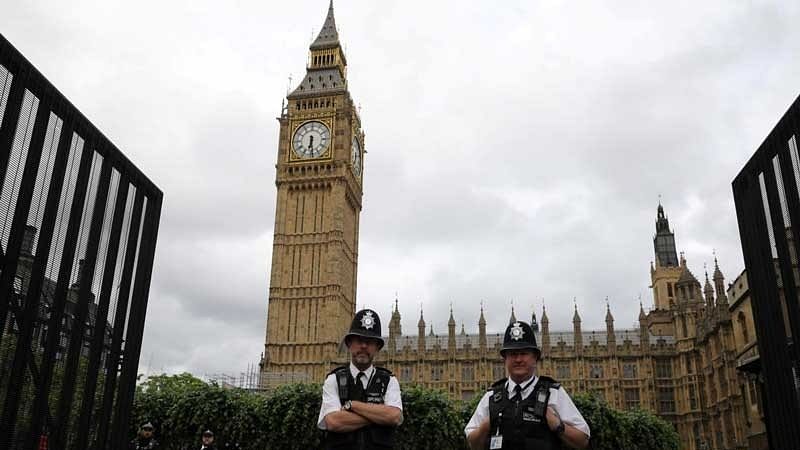
In changes to its immigration policy tabled in Parliament yesterday, the UK Home Office announced a relaxation of the Tier 4 visa category for overseas students from around 25 countries.
Credit: REUTERS FILE PHOTO
In early December Rebecca Kaya was celebrating after she and her Kurdish husband Baran finally hit their savings goal to qualify for a British visa so the couple could move from Icmeler in Turkey to Britain.
A few days later Prime Minister Rishi Sunak hiked the amount a British person must earn to sponsor a foreign partner to move to Britain - raising their fears that the savings threshold will also jump and their nest egg will not be enough.
The new policy came days after official data put legal net migration to Britain at a record high of 745,000 in 2022, prompting the government to announce a raft of measures to make it harder for people to move to the country.
Public concerns over high levels of migration have dominated Britain's political landscape for more than a decade, playing a key role in the country's vote to leave the European Union and prompting Sunak to try to send those who arrive illegally to Rwanda to act as a deterrent.
Targeting those who arrive on spousal visas - some 65,000 in the year ending September - the government has more than doubled the annual salary a British person must earn to sponsor a foreign partner's visa, to 38,700 pounds ($49,170) from 18,600 pounds.
According to the Migration Observatory at the University of Oxford, nearly 70% of British employees in the UK do not earn enough to qualify for the higher level in 2023.
It said Britain had one of the highest income requirements in the world, as many other countries base their levels around the minimum wage.
For the Kayas, they had pursued an alternative way of securing a visa, by building up personal savings from Baran's work in the family business in the hospitality trade, Rebecca's online jewellery company and inheritance money from her father.
They had just put the required 62,500 pounds into a UK account, where it would need to be for six months to gain a visa.
While the government has not said if the savings threshold will also rise, immigration lawyers expect it will. Immigration advice websites suggest it too could more than double, if the same calculation is applied as on income.
"We're doing everything that they're asking and ... just as we're at the final hurdle, they changed the requirements," Rebecca Kaya said on a visit to a family member's home in a small town outside Gloucester, England.
Britain's Home Office, the interior ministry responsible for migration strategy, has said the new policies will not be applied retrospectively and until the immigration rules are amended the minimum income threshold will remain the same.
"We are establishing the specifics of the policy, including how it will apply to those renewing visas, and will confirm more details in due course," a spokesperson said.
Visa Renewals
The new policy, which will come into force in April, has been announced with very few details, spreading alarm not just through couples hoping to move to Britain, but those already present who need to renew their visas.
Josephine Whitaker-Yilmaz, policy expert at migrants' charity Praxis, said the change was "strikingly at odds with the government's claim to be the party of families".
Paige Ballmi, 29, and her husband Tom, 29 who is from Albania, fear their domestic set up will be turned on its head too.
Under the rules, a first spousal visa depends on the income of the British national, but a couple's combined income will be considered for future visa renewals.
In their case, Tom, earning 32,000 pounds as a self-employed carpenter, is the main provider while Paige cares for their two-year-old daughter.
He will be eligible to apply for indefinite leave to remain in April as his second spousal visa expires, but she fears he may have to leave if they do not meet the 38,700 requirement.
"(This) is totally unfair on my child," she told Reuters in her home in Enfield, London. "She has a right to have both her parents here."
While there is support for Sunak's migration policies among parts of his party and the public, any heavy-handed move to tighten numbers also draws criticism, from businesses who say it will harm the economy, and from those who accuse the government of dictating who they can and cannot love.
On its own, a tightening of spousal rules is unlikely to hit the economy but critics have warned that some of those on the spousal system first came to Britain for postgraduate degrees, the type of skilled worker the government should want to retain.
Alexandra Kimmons, 29, hoped she would live in Britain with her husband, Ben Fong, when he completes his studies in the United States. But earning 35,000 pounds in the non-profit sector she is now considering asking family for help with savings, taking an extra job, or moving to the United States.
"Would you look at two-thirds of people on the street and say you don't have the right to fall in love with somebody who lives outside the UK?" she said. ($1 = 0.7871 pounds)